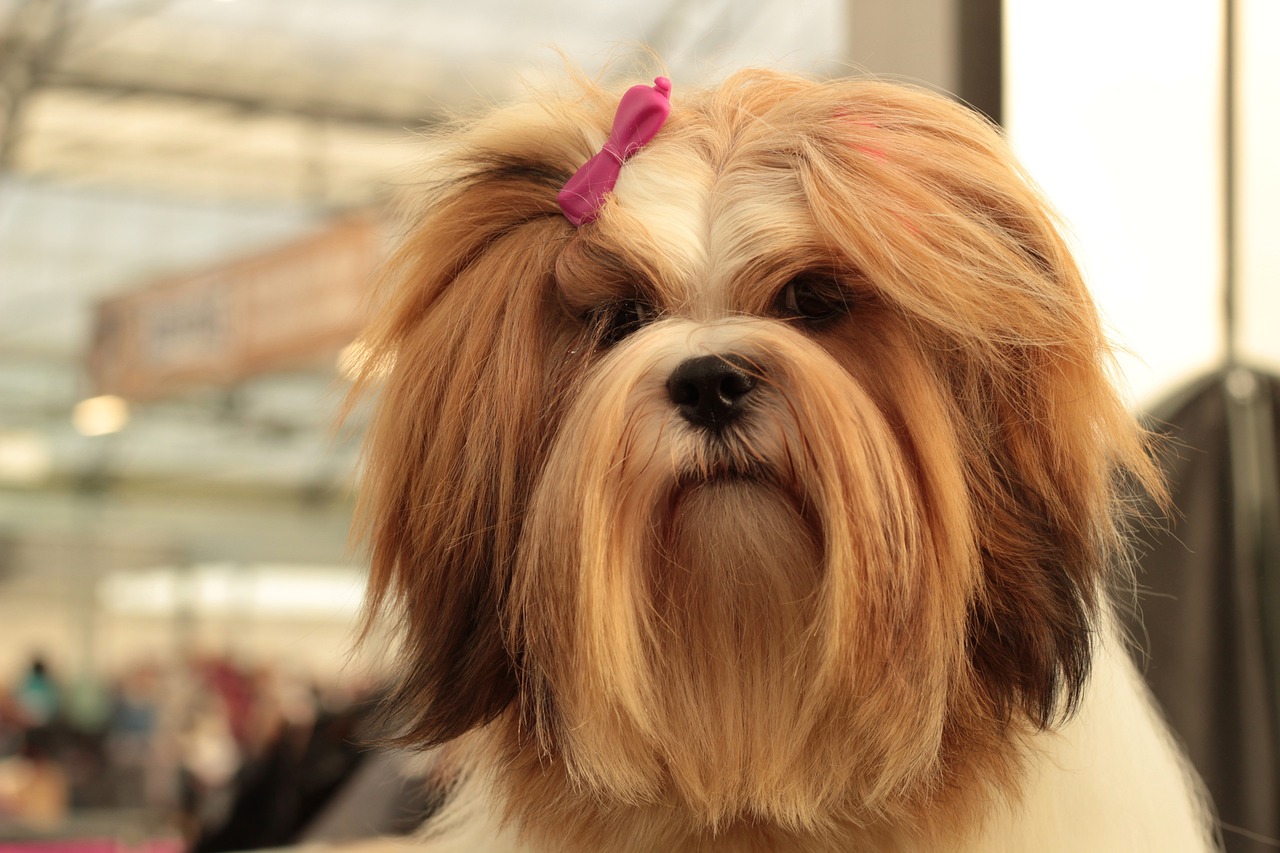Lhasa Apsos are known for their long, flowing coats and charming personalities. Despite being a relatively healthy breed, they are prone to specific health issues. A well-managed diet plays a crucial role in preventing and managing these conditions. This comprehensive guide will explore the common health concerns in Lhasa Apsos and the impact of diet on these issues.
Understanding the Genetic Health Risks in Lhasa Apsos
Lhasa Apsos, like all breeds, have genetic predispositions to specific health conditions. These include issues related to their eyes, skin, and joints. Awareness of these predispositions can help owners tailor their pet’s diet to mitigate potential health problems.
Managing Joint Health Through Nutrition
Lhasa Apsos can suffer from joint issues like patellar luxation and hip dysplasia. A diet rich in Omega-3 fatty acids, found in fish oils, can help maintain healthy joints. Additionally, maintaining a healthy weight through a proper diet can reduce stress on their joints.
The Role of Diet in Skin and Coat Health
Lhasa Apsos are known for their luxurious coats, which can be maintained with a proper diet. A diet rich in Omega-6 fatty acids, found in sources like flaxseed and poultry fats, can help keep their coat shiny and skin healthy. Regular grooming and a balanced diet are vital in preventing skin issues.
Eye Health in Lhasa Apsos: Dietary Considerations
This breed can experience eye problems like cherry eye and dry eye. A diet rich in antioxidants, vitamins A and E, can support eye health. Foods like carrots, blueberries, and leafy greens can benefit their diet.
Dietary Strategies for Weight Management
Weight management is crucial for Lhasa Apsos. Obesity can lead to numerous health issues, including exacerbating joint problems. A diet with controlled calorie intake and regular exercise is essential. Monitor food portions and limit treats.
Gastrointestinal Health and Diet
Lhasa Apsos may experience gastrointestinal sensitivities. Feeding them a diet with easily digestible proteins, carbohydrates, and probiotics can promote digestive health. Avoiding foods that can cause upset is also crucial.
The Importance of Hydration in Lhasa Apsos
Adequate hydration is essential for Lhasa Apsos. Ensure they always have access to fresh, clean water. Including wet food in their diet can also help increase their water intake.
Nutritional Needs for Active Lhasa Apsos
Active Lhasa Apsos require a diet that supports their energy levels. A diet higher in calories and proteins is beneficial for active dogs. Adjust the diet based on their activity level to ensure they receive enough energy.
Senior Lhasa Apsos: Adjusting Diet for Aging
As Lhasa Apsos age, their dietary needs change; senior dogs may benefit from diets lower in calories but higher in fiber and supplements like glucosamine for joint health. Regular veterinary check-ups can help in adjusting their diet as they age.
Conclusion: A Tailored Diet for Lhasa Apso Health
In conclusion, a well-balanced diet tailored to the specific needs of Lhasa Apsos can help prevent and manage various health issues. Regular consultations with a veterinarian can ensure that your Lhasa Apso’s dietary needs are met, allowing them to lead a long, healthy, and happy life.
Frequently Asked Questions About Feeding Lhasa Apsos
1. What is the best type of dog food for a Lhasa Apso?
The best dog food for Lhasa Apsos should be high in quality proteins and balanced in fats and carbohydrates. Look for foods where real meat, such as chicken, beef, or fish, is the first ingredient. Ensure the food is suitable for small breeds and meets the nutritional needs specific to Lhasa Apsos.
2. How much should I feed my Lhasa Apso?
The amount of food for a Lhasa Apso depends on their age, size, activity level, and metabolism. Generally, an adult Lhasa Apso requires about 1/2 to 3/4 cup of dry dog food daily, divided into two meals. Always refer to the feeding guidelines on your dog food’s packaging and consult your vet for specific advice.
3. Are grain-free diets suitable for Lhasa Apsos?
Grain-free diets can be suitable for Lhasa Apsos, especially if they have sensitivities or allergies to grains. However, ensuring the diet is well-balanced and provides all necessary nutrients is essential. Consult with a veterinarian before switching to a grain-free diet.
4. How often should I feed my Lhasa Apso puppy?
Lhasa Apso puppies should be fed three to four times daily with food formulated for puppies. As they grow older, around six months, you can reduce the number of feedings to twice a day. Puppy-specific food supports their growth and development.
5. Can Lhasa Apsos eat a raw food diet?
Yes, Lhasa Apsos can eat a raw diet, but it must be carefully balanced to include the right amounts of protein, fat, carbohydrates, and essential vitamins and minerals. Please consult a veterinarian or a canine nutritionist before starting a raw diet to ensure it’s appropriate and safe for your Lhasa Apso.
6. What human foods are safe for Lhasa Apsos?
Lhasa Apsos can safely eat some human foods in moderation, such as lean meats, carrots, apples (without seeds), and green beans. Avoid foods toxic to dogs, like chocolate, grapes, onions, and garlic. Always introduce new foods gradually and in small quantities.
7. How can I tell if my Lhasa Apso is overweight?
Feel for their ribs to determine if your Lhasa Apso is overweight and check their body shape. You should be able to handle the ribs without a thick layer of fat, and they should have a visible waist when viewed from above. An overweight dog will have a less visible body definition and may show signs of decreased energy and mobility.
8. What supplements should I add to my Lhasa Apso’s diet?
Joint supplements for Lhasa Apsos include fish oil for omega-3 fatty acids, glucosamine for joint health, and probiotics for digestive health. Before adding accessories, consult your veterinarian to determine if they are necessary and appropriate for your dog’s needs.
9. Is it okay for Lhasa Apsos to have dairy products?
Some Lhasa Apsos can tolerate dairy products in small amounts, but many dogs are lactose intolerant. If you give dairy, start with small amounts and monitor for any signs of digestive upset. Low-lactose dairy products like plain yogurt can be safer options.
10. How do I transition my Lhasa Apso to a new food?
When transitioning your Lhasa Apso to a new food, do it gradually over 7-10 days. Begin by mixing a small amount of the fresh food with the old, gradually increasing the proportion of the new while decreasing the old. This gradual change helps prevent digestive upset.
11. What are the signs of food allergies in Lhasa Apsos?
Signs of food allergies in Lhasa Apsos can include itching, red or inflamed skin, chronic ear infections, and gastrointestinal issues like diarrhea or vomiting. If you notice these symptoms, consult your veterinarian for an appropriate diagnosis and treatment plan.
12. Can Lhasa Apsos eat a vegetarian diet?
While dogs can survive on a vegetarian diet, it’s not ideal for Lhasa Apsos. They thrive on a diet that includes high-quality animal protein. Consult a veterinarian or canine nutritionist to ensure nutritional completeness if considering a vegetarian diet.
13. Should I feed my Lhasa Apso wet or dry food?
Both wet and dry foods can be suitable for Lhasa Apsos. Dry food can benefit dental health, while wet food can be more palatable and hydrating. Some owners choose to mix both. Consider your dog’s needs, preferences, and lifestyle when deciding.
14. How can I prevent obesity in my Lhasa Apso?
Preventing obesity in Lhasa Apsos involves maintaining a balanced diet with controlled portion sizes and ensuring regular exercise. Monitor their food intake, limit treats, and ensure they have daily physical activity. Regular veterinary check-ups can help in managing a healthy weight.
15. What is the importance of water in my Lhasa Apso’s diet?
Water is essential for your Lhasa Apso’s health, and they should always have access to fresh, clean water. Dehydration can lead to serious health issues, particularly in small breeds like Lhasa Apsos. Ensure your dog drinks enough water, especially after exercise and during hot weather.





